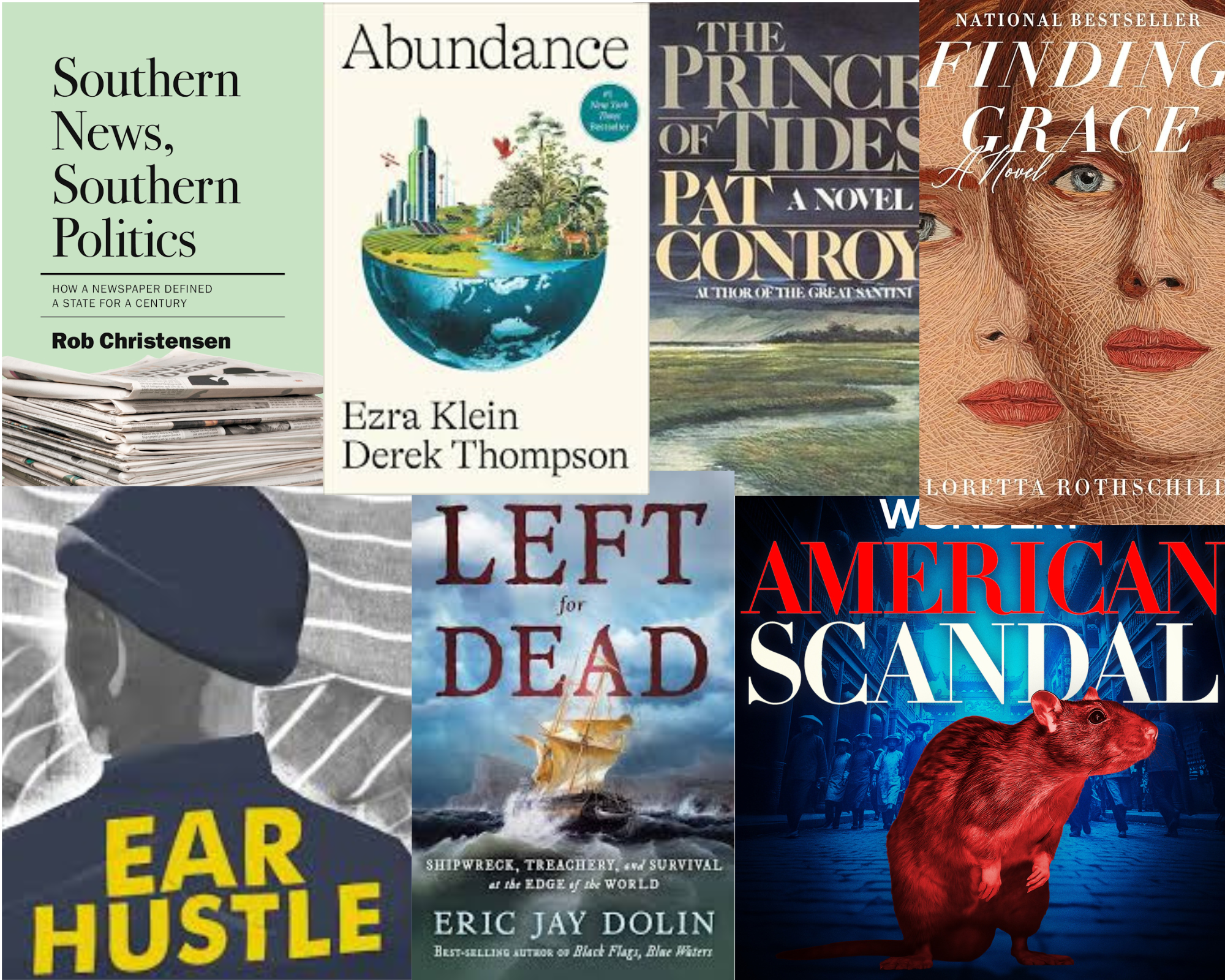School faculty share top podcast and book recommendations from summer 2025

As a new semester at the University of North Carolina at Chapel Hill kicks into full swing, the School of Government’s Master of Public Administration faculty and staff are busy at work welcoming new and returning students. With summer now behind us, the School decided to check in with Dean Aimee Wall and MPA faculty to find out what they listened to and read during the summer—right as they kick into the new fall semester.
Ricardo S. Morse, Professor of Public Administration and Government
“I finished a real page-turner of a book this summer called Left for Dead by Eric Jay Dolin. The subtitle kind of says it all; it is about ‘shipwreck, treachery, and survival at the edge of the world.’ It is a story that takes place in the Falkland Islands during the war of 1812, and the twists and turns it takes are one of ‘those real-life is stranger than fiction’ kind of stories.”
Kimberly L. Nelson, Professor of Public Administration and Government
“I have three books I have started recently. They are: Finding Grace, The Chain, and Getting to Yes. Two fun books and one workbook. I would describe The Chain as a crime thriller. I just started Finding Grace, so I can only say that it has a great beginning. I also recently finished a book titled, Who is Government? I would definitely recommend this book for MPA students. The author Michael Lewis uses a set of essays to highlight the importance of the work of the government bureaucrat. Reading this book validated my passion for public service.
Podcasts help me relax at night before going to sleep. I like history podcasts and true crime, particularly ‘American Scandal: The Plague of San Francisco’. The podcast tells the story of a bubonic plague outbreak in San Francisco in 1900 and how a young, early bacteriologist tries to stop it and is faced with a corrupt city government that hinders his efforts.”
Charles Szypszak, Albert Coates Distinguished Professor of Public Law and Government
“I’m reading Pat Conroy’s The Prince of Tides, about a troubled family from South Carolina. I was reminded of the title while watching Ted Lasso. In the show, Ted asks others about their favorite books. His is The Fountainhead, which is one of my all-time favorites. A therapist for the team tells Ted that hers is The Prince of Tides. One interesting aspect of the book to me is the contrast of the author’s portrayal of the cultures of New York City and South Carolina.”
Aimee N. Wall, Dean
“I just finished reading Southern News, Southern Politics by Rob Christensen. The Daniels family and the Raleigh News and Observer serve as the anchors—but this book is really a fascinating study of the role of journalism in local, state, and even national politics. I learned a great deal about North Carolina politics and history. I came away with a long list of questions I need to investigate and rabbit holes I need to go down.”
Jeffrey Welty, Professor of Public Law and Government
“One book I’m reading now is Abundance, by Ezra Klein and Derek Thompson. Much of the book is about housing, infrastructure, and how to make our great cities more affordable and more livable. It also examines the unintended consequences of zoning and development regulations—concerns that are as pertinent in Chapel Hill as they are in New York or San Francisco.”
Teshanee Williams, Assistant Professor of Public Administration and Government
“I listened to ‘Ear Hustle’, which is a podcast that shares daily realities of life inside prison and stories from people once they’ve gotten out. It was created inside San Quentin State Prison by visual artist Nigel Poor and formerly incarcerated men Earlonne Woods and Antwan Williams.
The episodes cover everything from the nuances of prison culture to the challenges of reentry, told in first-person narratives that are raw, empathetic, and often surprisingly funny. I enjoy listening to it because it brings attention to many unseen issues and raises awareness of the benefits associated with rehabilitation in prisons. The podcast’s stories, whether about cooking in a cell or facing parole hearings, offer a humanizing and eye-opening look at life during and after incarceration, showing resilience and the importance of second chances.”
